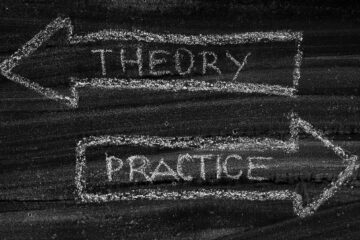Cross-posted at Education Week
So we now have the civil rights community accusing those who oppose annual accountability testing of deliberately undermining the civil rights of minority children. The No Child Left Behind Act required not only that students be tested each year in grades three through eight and one additional year in high school, but it also required that the scores for students in each minority group be published separately. Take this requirement away, the civil rights groups say, and we will go back to the era in which schools were able to conceal the poor performance of poor and minority children behind high average scores for the schools. Once that happens, the schools will have no incentive to work hard to improve those scores and the performance of poor and minority kids will languish once again.
None of this is true, though I am quite sure the civil rights community believes it is true. First of all, the data show that, although the performance of poor and minority students improved after passage of the No Child Left Behind Act, it was actually improving at a faster rate before the passage of the No Child Left Behind Act. Over the 15-year history of the No Child Left Behind Act, there is no data to show that it contributed to improved student performance for poor and minority students at the high school level, which is where it counts.
Those who argue that annual accountability testing of every child is essential for the advancement of poor and minority children ought to be able to show that poor and minority children perform better in education systems that have such requirements and worse in systems that don’t have them. But that is simply not the case. Many nations that have no annual accountability testing requirements have higher average performance for poor and minority students and smaller gaps between their performance and the performance of majority students than we do here in the United States. How can annual testing be a civil right if that is so?
Nonetheless, on the face of it, I agree that it is better to have data on the performance of poor children and the children in other particularly vulnerable groups than not to have that data. But annual accountability testing of every child is not the only way to get that data. We could have tests that are given not to every student but only to a sample of students in each school every couple of years and find out everything we need to know about how our poor and minority students are doing, school by school.
But the situation is worse than I have thus far portrayed it. It is not just that annual accountability testing with separate scores for poor and minority students does not help those students. The reality is that it actually hurts them.
All that testing forces schools to buy cheap tests, because they have to administer so many of them. Cheap tests measure low-level basic skills, not the kind of high-level, complex skills most employers are looking for these days. Though students in wealthy communities are forced to take these tests, no one in those communities pays much attention to them. They expect much more from their students. It is the schools serving poor and minority students that feed the students an endless diet of drill and practice keyed to these low-level tests. The teachers are feeding these kids a dumbed down curriculum to match the dumbed down tests, a dumbed down curriculum the kids in the wealthier communities do not get.
Second, the teachers in the schools serving mainly poor and minority kids have figured out that, from an accountability standpoint, it does them no good to focus on the kids who are likely to pass the tests, because the school will get no credit for it. At the same time, it does them no good to focus on the kids who are not likely to pass no matter what the teacher does, because the school will get no credit for that either. As a result, the faculty has a big incentive to focus mainly on the kids who are just below the pass point, leaving the others to twist in the wind. This is not because they are bad people. They are simply doing what the accountability testing system forces them to do. But this means that the kids who need their teachers the most and the kids who with a little more attention could do much better don’t get the attention they need.
So, how did we get here? Why are the civil rights groups fighting so hard for annual accountability testing when there is no evidence that it helps poor and minority kids, there is evidence that it hurts them and there are other, far less obtrusive ways to make sure that we know how poor and minority students are doing in school?
It turns out that there is one big interest that is well served by annual accountability testing. It is the interest of those who hold that the way to improve our schools is to fire the teachers whose students do not perform well on the tests. This is the mantra of the U.S. Department of Education under the Obama Administration. It is not possible to gather the data needed to fire teachers on the basis of their students’ performance unless that data is gathered every year.
The Obama Administration has managed to pit the teachers against the civil rights community on this issue and to put the teachers on the defensive. It is now said that the reason the teachers are opposing the civil rights community on annual testing is because they are seeking to evade responsibility for the performance of poor and minority students. The liberal press has bought this argument hook, line and sinker.
This is disingenuous and outrageous. Not only is it true that annual accountability testing does not improve the performance of poor and minority students, as I just explained, but it is also true that annual accountability testing is making a major contribution to the destruction of the quality of our teaching force.
Teachers are not opposed to annual accountability testing because they are enemies of their students’ civil rights. They are opposed to annual accountability testing because it is being used to punish teachers in ways that are grossly unfair and singularly ineffective.
Many of the most highly respected American scholars have repeatedly pointed to serious methodological flaws in the systems being used to tie student performance to the work of individual teachers. These methods do not take into account the differences in the backgrounds of the students a teacher gets, the differences in the preparation of those students, the influence of the work of other teachers of the same students in the same grades and so on. The result is that a given teacher can be shown by the data to be a top performer one year and a lousy one the next. On the basis of such systems, some teachers are fired and others retained. One of the most important features of these accountability systems is that they operate in such a way as to make teachers of poor and minority students most vulnerable. And the result of that is that more and more capable teachers are much less likely to teach in schools serving poor and minority students. How, I want to know, is this helping the students the civil rights community is trying to help?
Applications to our schools of education are plummeting and deans of education are reporting that one of the reasons is that high school graduates who have alternatives are not selecting teaching because it looks like a battleground, a battleground created by the heavy-handed accountability systems promoted by the U.S. Department of Education and sustained by annual accountability testing.
It is, in my view, time for the civil rights community to rethink its position.






